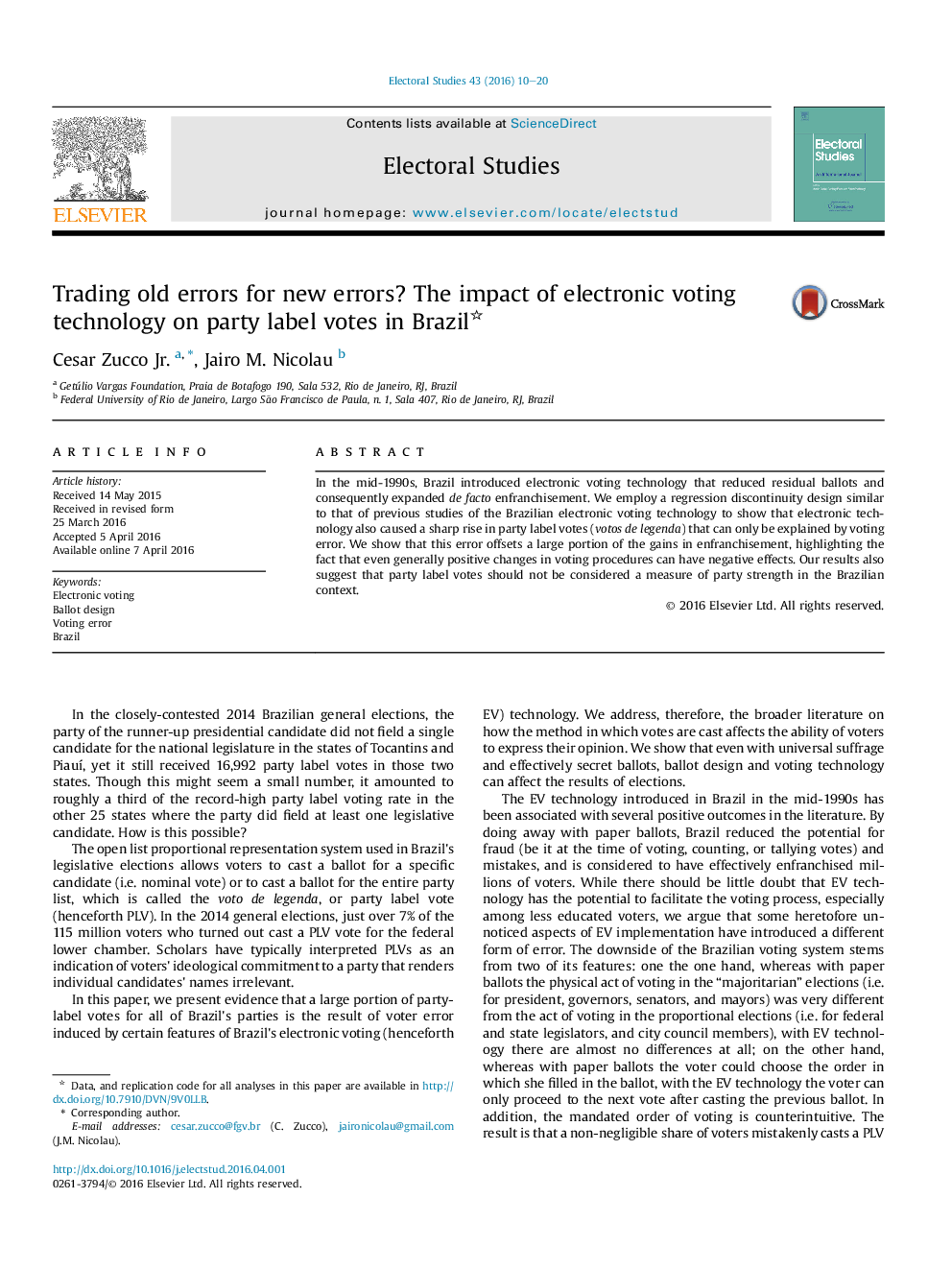| Article ID | Journal | Published Year | Pages | File Type |
|---|---|---|---|---|
| 7463530 | Electoral Studies | 2016 | 11 Pages |
Abstract
In the mid-1990s, Brazil introduced electronic voting technology that reduced residual ballots and consequently expanded de facto enfranchisement. We employ a regression discontinuity design similar to that of previous studies of the Brazilian electronic voting technology to show that electronic technology also caused a sharp rise in party label votes (votos de legenda) that can only be explained by voting error. We show that this error offsets a large portion of the gains in enfranchisement, highlighting the fact that even generally positive changes in voting procedures can have negative effects. Our results also suggest that party label votes should not be considered a measure of party strength in the Brazilian context.
Keywords
Related Topics
Social Sciences and Humanities
Social Sciences
Geography, Planning and Development
Authors
Cesar Jr., Jairo M. Nicolau,
